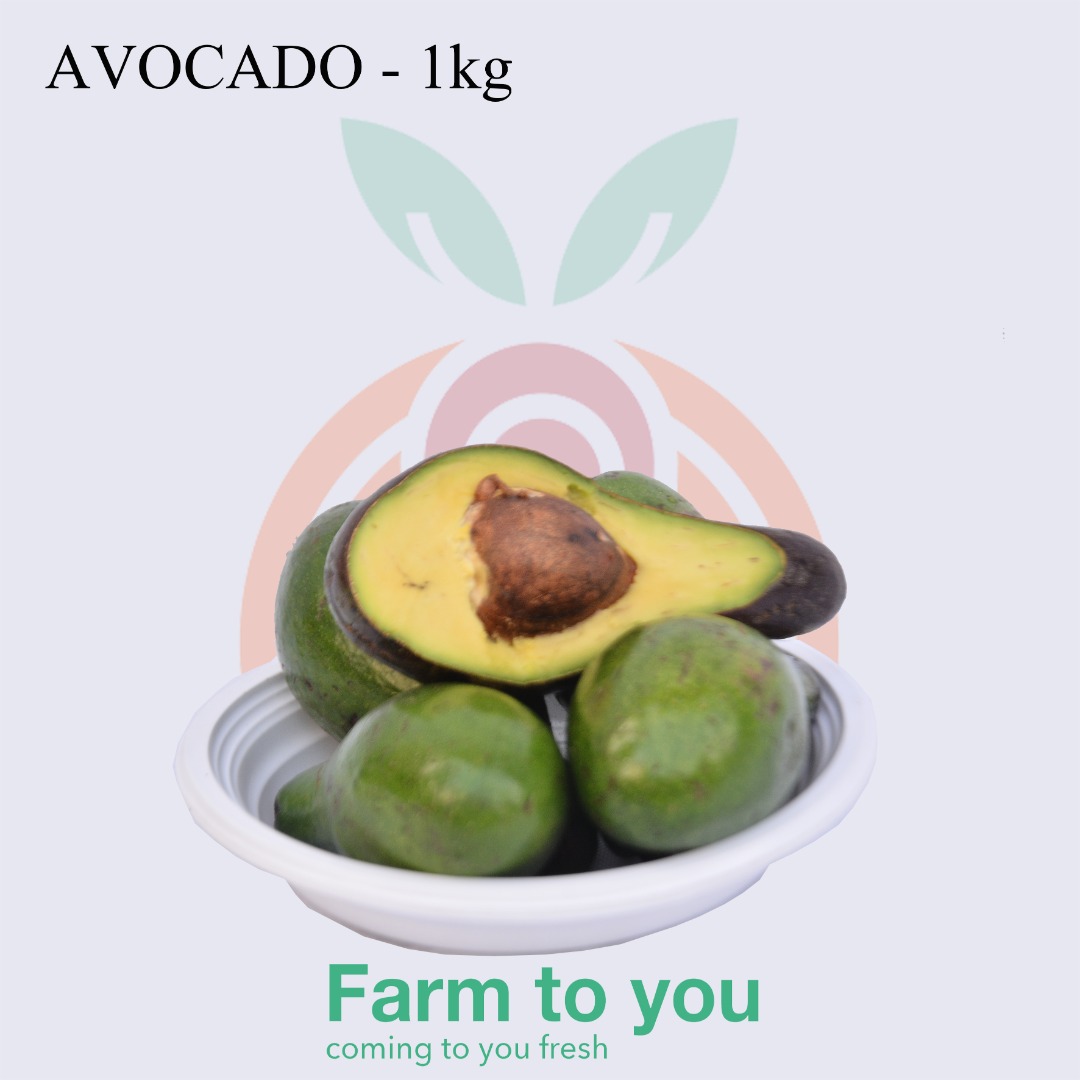Fruits
Avocado
₦3,000.00
Avocado is a nutrient-rich fruit known for its creamy texture and numerous health benefits
Avocado is a nutrient-rich fruit known for its creamy texture and numerous health benefits. Here are some key points about avocados:
Characteristics
- Appearance: Avocados are pear-shaped or spherical, with a rough, green or black skin that becomes darker as it ripens. Inside, they have a large seed surrounded by a creamy, greenish-yellow flesh.
- Varieties: There are many varieties, including Hass (most common), Fuerte, Bacon, and Reed, each with slightly different textures and flavors.
- Flavor: Mild, buttery, and slightly nutty, making it versatile for both sweet and savory dishes.
Nutritional Value
- Healthy Fats: High in monounsaturated fats, particularly oleic acid, which is beneficial for heart health.
- Vitamins: Rich in vitamins K, E, C, and several B vitamins, including folate.
- Minerals: Contains potassium, magnesium, and small amounts of iron and copper.
- Fiber: High in dietary fiber, aiding in digestion and promoting a feeling of fullness.
- Antioxidants: Includes lutein and zeaxanthin, which are beneficial for eye health.
Health Benefits
- Heart Health: Monounsaturated fats can help reduce bad cholesterol levels (LDL) and increase good cholesterol levels (HDL).
- Weight Management: Healthy fats and fiber promote satiety and can help in weight management.
- Blood Sugar Regulation: Low in carbohydrates and high in fiber, helping to stabilize blood sugar levels.
- Nutrient Absorption: The fats in avocados help absorb fat-soluble vitamins (A, D, E, and K) from other foods.
- Anti-inflammatory: Contains compounds that may reduce inflammation in the body.
Culinary Uses
- Raw: Often eaten raw in salads, sandwiches, or as a snack with a sprinkle of salt or lime.
- Guacamole: Mashed and mixed with lime juice, salt, and other ingredients like tomatoes, onions, and cilantro.
- Smoothies: Blended into smoothies for added creaminess and nutritional boost.
- Baking: Used as a substitute for butter or oil in baking for a healthier option.
- Spreads and Sauces: Made into spreads, dressings, or sauces for a creamy texture.
- Grilled or Roasted: Can be grilled or roasted and added to various dishes for a smoky flavor.
Growing Conditions
- Climate: Prefers warm, tropical or subtropical climates.
- Soil: Grows best in well-drained soil with a pH between 6 and 7.
- Watering: Requires regular watering, especially during dry periods, but should not be waterlogged.
Storage
- Ripening: Unripe avocados can be ripened at room temperature. Placing them in a paper bag with an apple or banana can speed up the ripening process.
- Refrigeration: Ripe avocados can be stored in the refrigerator to prolong freshness for a few days.
- Preventing Browning: Once cut, avocados can brown quickly. Sprinkling with lemon or lime juice can help prevent this.
Cultural Significance
- Traditional Uses: Avocados have been cultivated and consumed by indigenous peoples in Central and South America for thousands of years.
- Modern Popularity: Now widely popular around the world, especially in health-conscious diets and trendy culinary applications.
| Weight | 1kg, 500g |
|---|
You must be logged in to post a review.






Reviews
There are no reviews yet.